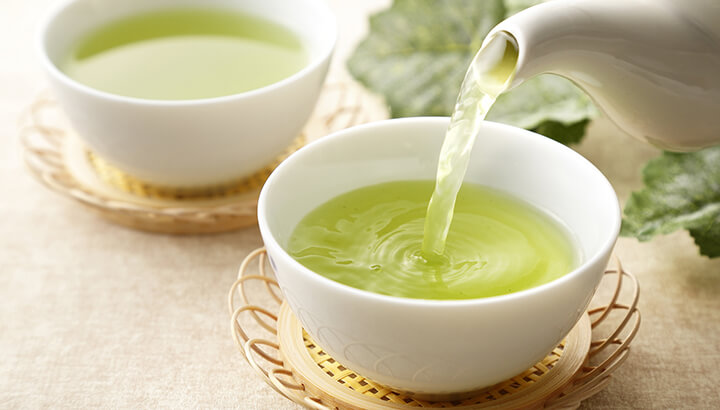
Do you know what your tongue is trying to tell you? It may seem odd, but a quick glance at your tongue can help you gauge your overall health. Here are some of the more common tongue concerns and what to do about them.
Red bumps
If you see little red bumps on your tongue, chances are there is no need to worry. Most of the time this is due to enlarged papillae, which are normally the same color as your tongue and help you with eating and taste. On occasion, papillae can become irritated and grow for a number of reasons. These include stress, hormones or as part of a reaction to particular foods. Typically, these little bumps will go away on their own after a few days, without treatment.
If the bumps are accompanied by fever and swollen glands, you may have eruptive lingual papillitis. This condition is most common in children and often occurs in conjunction with viral infections. However, not to worry. Most of the time, this infection goes away on its own within one to two weeks. If you need some relief, try rinsing saltwater in your mouth or eating cold foods. See your doctor if your tongue bumps don’t go away, become painful, spread or change in size.
If you develop a large bump, it may be a canker sore. These can be painful, especially under the tongue. Canker sores are not contagious and will usually go away on their own within a week to 10 days. In the meantime, you can also try natural remedies for relief, including a saltwater rinse, applying clove oil and sipping on chamomile tea.
White bumps

If you notice white bumps on your tongue or inner cheeks that look like a rash, you may have picked up a condition called thrush. The infection is caused by a candida overgrowth, the same fungus that causes diaper rashes in young children and yeast infections in females.
It’s normal to have a small amount of the candida fungus is your mouth and digestive tract. Normally, the “good” bacteria will help to keep them in check. However, a number of conditions and medications can throw this delicate balance out of whack, which causes the fungus to grow out of control and take over. Here are some of the things that cause thrush:
- HIV
- Cancer
- Smoking
- Dry mouth
- Autoimmune issues
- Uncontrolled diabetes
- Dentures that don’t fit correctly
- Hormone changes (including pregnancy)
If you suspect you may have thrush, it’s important to see your doctor. You’ll need antifungal medications for up to two weeks. You can also help support your immune system by eating plenty of whole, fresh foods and staying far away from sugar and refined carbohydrates. In addition, include fungus-fighters in your diet, like apple cider vinegar, coconut oil, tea tree oil and probiotics in your diet.
Swelling

If your tongue is suddenly swollen, chances are you’re allergic to something you just ate or drank. It may also come from toothpaste, mouthwashes or other oral hygiene products. You may even notice swelling after you take certain medications. This is a dangerous condition that could impair your breathing. It’s important to seek medical attention right away!
If your tongue is only mildly swollen, it’s probably not an allergic reaction. Did you burn your tongue with coffee? Did you bite your tongue in your sleep? These can also cause swelling and inflammation. If this was the case, suck on ice chips or put a spoonful of raw honey on your tongue to speed up the healing process. If you can’t remember an injury, something else may be to blame. Cigarettes, alcohol and spicy foods can all cause tongue inflammation, so avoid these triggers and see if your tongue goes back to normal.
Changes in tongue color
Your tongue should be a light pink color when you’re feeling healthy. So, if your tongue is taking on a different hue than normal, here is what you need to know:
- Red tongue: You may have an iron or vitamin B-12 deficiency. For iron, eat seafood, beans, nuts and dark leafy vegetables. For B-12, eat more salmon and yogurt.
- Purple tongue: You may be suffering from high cholesterol or heart problems. Stick to a heart-healthy Mediterranean diet and see your doctor to make sure that your ticker is functioning properly.
- Yellow or green tongue: You may have an infection in your upper respiratory tract, and your tongue is coated in phlegm. See your doctor and supplement your diet with plenty of garlic, ginger, oregano and vitamin C from fresh fruits. You can also find an echinacea tincture to give your immune system a boost.
How to keep your mouth healthy

Your oral health says a lot about your overall health, so make sure to give it the attention it deserves. Make sure to:
- Brush your tongue or use a tongue scraper to get rid of buildup
- Stay hydrated, so saliva can wash away plaque-forming bacteria
- Try oil pulling with coconut oil to remove bacteria from your mouth
- Avoid cigarettes, soda and chewing on ice chips to protect your teeth
- Cut out candida-causing foods, like refined sugar and processed carbs
- Avoid chemical-filled irritants like conventional toothpaste and mouthwash, choosing homemade toothpaste and mouthwash instead
- Drink green tea regularly to eliminate excess bacteria, prevent oral cancer, control cavities and freshen your breath naturally
Each morning, stick out your tongue and give your mouth a quick once over — it may be trying to tell you something.
— The Alternative Daily

